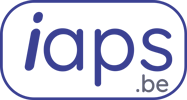Registration fees
Language courses
120-period modules- Discounted price: €50
- Day or evening language courses
- 2 lessons per week for one semester
Language courses
Two 120-period modules- Reduced price: €75
- Evening classes: two semesters in the same language (throughout the school year)
- OR intensive French courses (4 mornings or 4 afternoons) for one semester
IT
40- or 60-period modules- Reduced price : 30€
- Enrolment for a second course: €40
Reduced prices
All courses are fee-based, but in certain cases students can benefit from a reduction in the registration fee (exemption from the registration fee).
The discount is linked to the student’s status.
This can only be granted if the student fulfills all the conditions associated with his or her status (see below).
Students entitled to a discount who apply in June to re-enroll in courses starting in September will have to pay the full price. They will then have to present a certificate from the new school year and request a refund of part of the registration fee. If the student is unable to pay the full fee in June, the registration cannot be completed and the place on the chosen course cannot be reserved. They will have to return at a later date with a valid document, and we will only be able to register them if there is still room available.
Job seekers (under certain conditions)
Jobseekers registered with Actiris, Forem or VDAB, under certain conditions:
– Fully compensated unemployed
– Compensated part-time workers
– Young people on vocational training courses
– Jobseekers on vocational training courses
- Jobseekers registered with ACTIRIS or FOREM. At the time of registration, they communicate their status and pay the full price. After confirmation of their status by ACTIRIS or FOREM on the 1st/10th of the course, reimbursement will be granted.
- Job seekers registered with the VDAB, under certain conditions. At the time of registration, they pay the full price. To be reimbursed, they follow this procedure after the 1st/10th date of the course: download and print proof of their registration with the VDAB from their personal VDAB space “Mijn Loopbaan” by clicking on the tab “Bekijk je inschrijvingsbewijs” (consult your proof/certificate of registration). This proof of enrolment must state that the student has been “werkloos” since a date prior to 1/10th.
Jobseekers with no income and a spouse receiving cohabiting benefits with family responsibilities pay the full price at the time of registration. After the 1st/10th of the course, they must submit a request for reimbursement by providing the following documents:
- a certificate from Actiris / Forem / VDAB stating that the spouse is entitled to the cohabitant with family rate of benefit,
- a household composition less than one month old proving legal cohabitation.
Young people aged 16 to 18
Underage students aged over 16 and under 18 on the date of the 1st/10th of the course qualify for the discount provided they :
- provide proof of enrolment for the current school year in a full-service school in Belgium or in a reduced-schedule center, or be under an apprenticeship contract,
OR
- proof of release from compulsory education (CESS or enrolment in higher education)
People with disabilities
To obtain the discount at the time of registration, disabled people must provide a document issued by AVIQ, PHARE, SPF or INAMI (mutual insurance company documents are not accepted) attesting to their disability.
If the document certifies a disability limited in time, the period of disability must cover the date of the 1st/10th of the training period. This document must be issued during the academic year of training.
If the document certifies an “indefinite”, “permanent”, etc. disability, the document must have been issued no more than 5 years before the date of the 1st/10th of the training.
- For people enrolled with AVIQ or INAMI, the document must have been issued in the current academic year (from August).
- For SPF subscribers:
either the document is marked “open-ended” and must have been issued no more than 5 years before the date of the 1st/10th of the training course;
or the document is for a fixed term and the validity period must cover the date of the 1st/10th of the training course. - PHARE subscribers must pay the full price;
apply for reimbursement on presentation of a document from the mutual insurance company, CAAMI or IrisCare stipulating that the condition of disability recognition, based on Article 3/1, § 2 of the Order of December 21, 2018, has been met;
this document must cover the date of the 1st/10th of the training.
CPAS income recipients
People receiving the social integration income (RIS) or equivalent are entitled to a reduction under the following conditions:
- Provide a certificate from the CPAS stating that the person is receiving the social integration income or assistance equivalent to the social integration income.
- N.B.: the sole mention “benefits from social financial assistance” is not accepted.
- If the CPAS document states that the person “benefits from the social integration income to date”, the attestation must be issued between the start of the training and the 1st/10th of the training.
- If the CPAS document mentions the months during which the person has benefited from RIS, then the month preceding the start of the training must be included on the certificate.
People with no income whose spouse receives the social integration income at the CPAS household rate must provide :
- a certificate from the CPAS stating that the spouse receives the household rate of social integration income or equivalent assistance
- a household composition less than one month old proving legal cohabitation.
Civil servants and teachers
Under the following conditions:
- For civil servants, “obligation” imposed by a public authority as employer (Appendix 6)
- For teachers (from the FWB), IT training (Appendix 4) or “refresher training” linked to the content of their job (Appendix 5).
Beneficiaries of FEDASIL, La Croix Rouge, CARITAS, ...
Beneficiaries must provide a document of material assistance (prise en charge) with a validity date covering the 1/10th of the course.
List of approved organizations issuing the required certificate :
- Red Cross and Rode Kruis reception centers,
- Caritas International facilities,
- Ciré reception facilities,
- Fedasil federal reception centers,
- Welcome center for the Mutualités Socialistes,
- Samu Social reception center,
- The French-speaking and Flemish Communities,
- local reception initiatives (ILA) or Lokaal opvang Initiatief (LOI), which are reception structures managed by the CPAS (public social welfare centers)
- and any other partner who has signed an agreement for the reception of asylum seekers.



